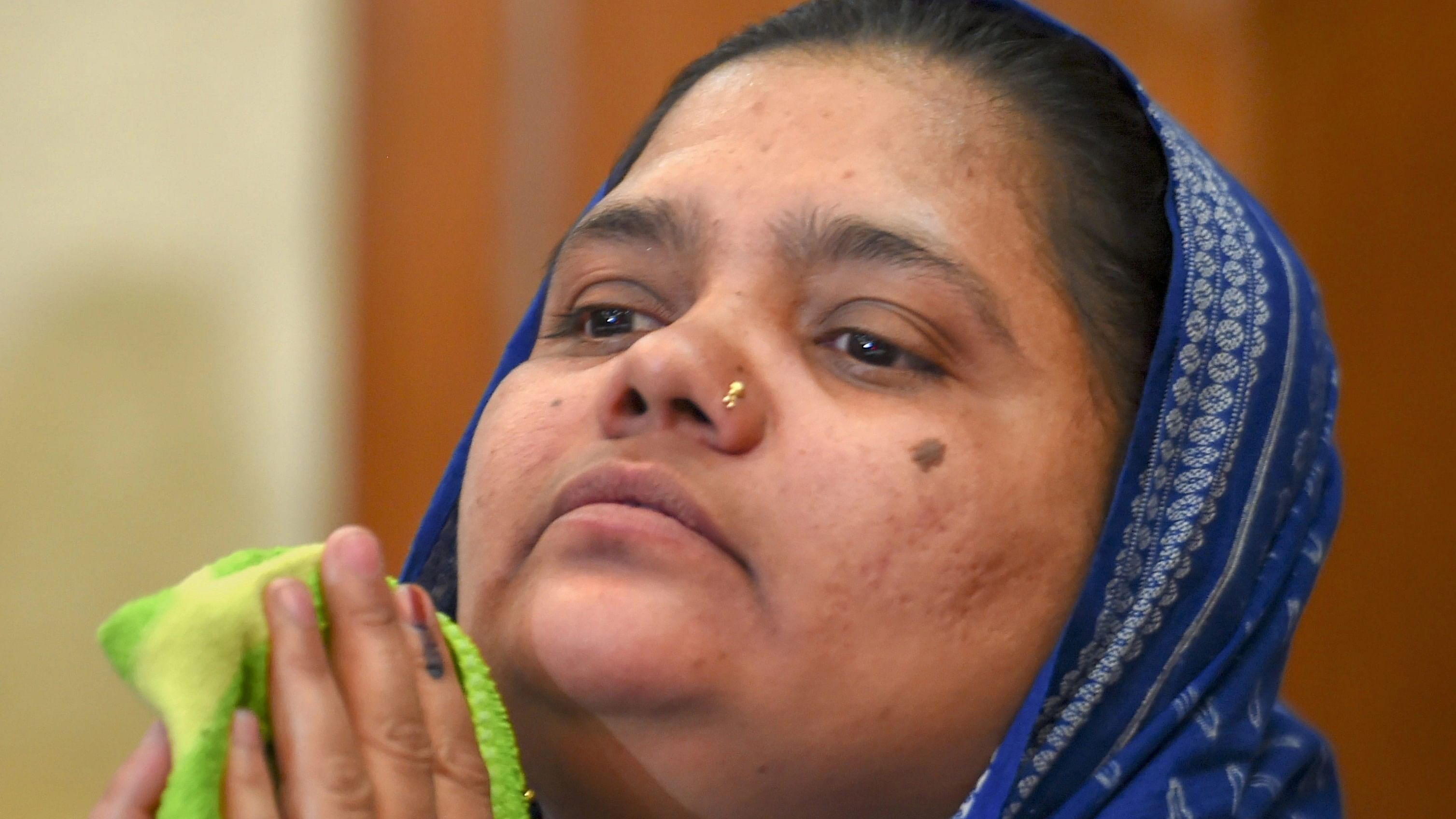
Bilkis Bano.
Credit: PTI File Photo
New Delhi: The Supreme Court on Friday declined to entertain a plea filed by two men for interim bail in a case in which they were convicted of gang-rape of Bilkis Bano and killings of her family members during the Gujarat riots in 2002.
A bench of Justices Sanjiv Khanna and Justice P V Sanjay Kumar questioned the validity of the plea and termed it absolutely misconceived, saying the court cannot sit in appeal here.
Convicts Radheshyam Bhagwandas alias Lala Vakil and Rajubhai Babulal Soni moved the court for interim bail months after the apex court set aside an order by the Gujarat government to grant them remission.
In their plea, the convicts sought interim bail, till a fresh decision is taken by this court on their pleas for remission.
"What is this plea? How is it even maintainable? Absolutely misconceived. How can we sit over appeal? No, dismiss," the bench said, as soon as the matter was taken up.
Advocate Rishi Malhotra, appearing for the two convicts, sought withdrawal of the plea. The court dismissed the petition as withdrawn.
The apex court on January 8, 2024, quashed the Gujarat government’s decision in August 2022 of granting remission to 11 convicts sentenced to life term for the gangrape of Bilkis Bano and murder of her family members during the 2002 Gujarat communal riots.
The court had then directed all these 11 convicts to surrender within two weeks.
The Gujarat government had granted remission after May 2022 judgment in which the top court held that an application of remission should be considered in line with the policy of the state where the crime was committed and not where the trial was held.
After the January 8, 2024, judgment, the two convicts approached the Supreme Court, questioning the validity of the two-judge bench judgment, which set aside a previous co-ordinate bench judgment to quash their premature release.
They also contended that, in view of conflicting judgments, the matter should be referred to a larger bench for final adjudication and proper determination on law and merits of the case.
They also said it is the policy of remission, which is in vogue at the time of conviction by the trial court, that would be applicable and not a subsequent policy.
